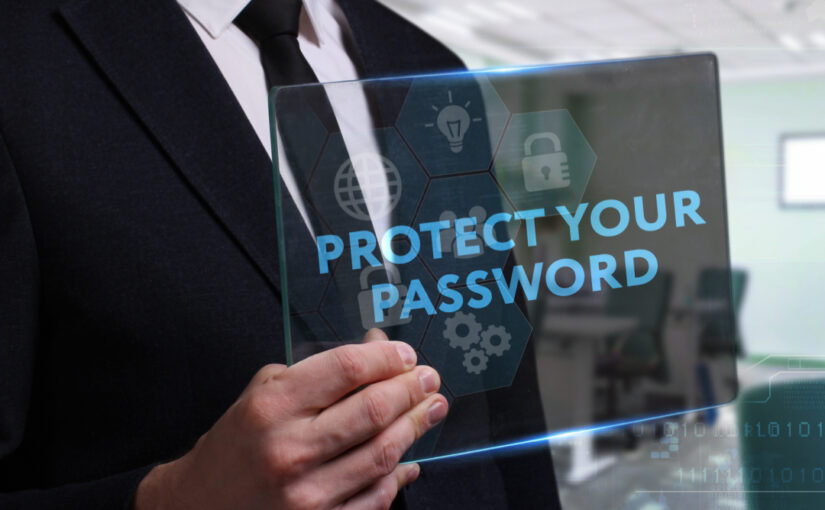Creating strong passwords may seem like a tediously daunting task, especially when the consensus is to use a unique password for every site you visit.
It’s simply nuts trying to keep track of these things along with everything else in your life. Consequently, you may be more inclined to use one password despite the fact that we know it’s unsafe and potentially compromises all of our information. Or you may use numerous passwords, although they are simple words, or include numbers that relate to our lives which are easy for hackers to guess.
Those hard-to-remember passwords (probably because your business or a website forced you to) are just that, hard to recall. So these passwords are right next to your computer – even though this also compromises safety on a shared computer.
Forgettable passwords are useless. And passwords that are too easy can lead to an attack. With most of our personal lives increasingly migrating to online status, iStratus is here to give you some ideas on how to create strong passwords and keep your information safe in a technological world.
What’s A Strong Password You Ask?
Strong passwords are typically longer (the longer the better); a combination of letters (upper and lower case), numbers, and symbols, not connected to personal information or dictionary words.
The good news is you don’t have to memorize awful strings of randomness, impossible to remember. It simply takes a few effective tricks.
Weak Passwords Are Easily Spotted
Passwords can be memorable and remain difficult to guess. Creating them can be fun and safety is a huge payoff.
Let’s consider what constitutes “weak passwords” to understand why these are risky:
First, a word akin to “Password” is a NO.
Password is the most commonly used password. We also believe it’s pretty clear why such a password is weak – as are words like: ’default’. Programs that use automated assault can easily identify these passwords. As is using a last name and year of birth (i.e. Smithy1965) combination, particularly if someone knows you well. Identifying pieces of information also means it can be easily deciphered.
Secondly, let’s say, you use “F1avoR” as a password, mixing up capital letters and numbers. Here are two important reasons why this password example isn’t safe:
- It’s a common word and
- If a password is too short, it isn’t safe either. A long password is a strong password, as it’s harder to decode/break. Also, substituting the number “1” for the letter “I” is easy to guess for both humans and software alike.
Staying Password Strong and Secure
By now, you’ve likely discovered that the “perfect password” is a lengthy combination of obscure letters, numbers, cases, and symbols. You’ve got it.
It’s also important NOT to:
- Write your passwords down: This can be tempting, especially in the workplace, to keep track of passwords the old-fashioned way, but these are easily discovered.
- Reuse your passwords. If your passwords are identical across email, and other websites holding sensitive personal data, it is easily exposed and is at risk of being breached.
- Don’t share your passwords. It’s a total no-brainer and if you absolutely must, change it as soon as possible.
Create a Unique Password (That’s Also Strong)
The short answer is: A hard-to-crack password is unique and easy to remember.
In addition, we encourage you to use a password manager, like our iStratus Vault, which is specifically designed to offer you a way to store passwords securely. Learn more about organizing your passwords with a password vault here.
Password Induced Stress
New research by NorPass suggests, the stress of trying to recall our passwords is contributing to the vicious cycle of mental health, anxiety, and stress.
Their evidence indicates, “the average Internet user has around 70-80 passwords” for their accounts? So each year, “we spend 7-12 hours on average trying to remember and reset those passwords.”
Thus, trying to keep track of these procedures and memorize our passwords results in a lot of time wasted, which inadvertently contributes to the experience often referred to as password stress.
Our suggestion in creating a password is to apply a phrase and incorporate shortcuts or acronyms that either mean something to you, or you associate with a type of website, with minimal effort.
For example, it could be a phrase about money for a banking site, and so forth. You can be Shakespeare’s Hamlet: 2BankorNot2Bank_Thisis$? (Based on “To be or not to be? That is the question”).
Also, Use Commonly Accepted Symbols:
This is self-explanatory, symbols such as ! # $ % * & + = can help you create stronger passwords
Give Emoticons Some Love
While there are some limits with the types of symbols you can use, most sites allow a decent range. Try turning them into “smiley” faces, :))) and give a fun boost to your password power. You already know that a smile is easier to recall!
Check Out Your Keyboard
Given that most computer keyboards contain anywhere from 101 to 105 keys, there are countless options to craft unique passwords. It’s a canvas to draw on! So get creative with your system of symbols, abbreviations, and combinations that works for you.
iStratus hopes you find these ideas helpful. Share these tips around. Just don’t share your passwords and change them regularly!
